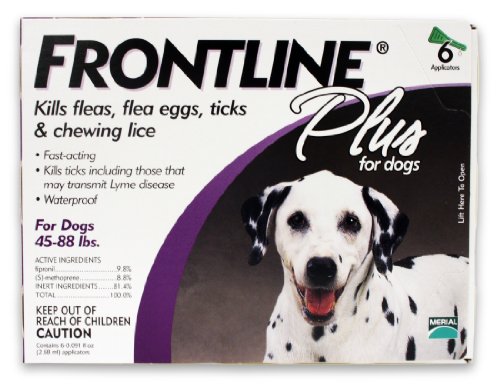Tapeworms In Dogs
Tapeworms are the most common internal parasite problem in dogs. It is relatively easy to notice if your dog is suffering from tapeworms as they usually manifest themselves in the form of rice-like grains in the feces and anal area. They resemble rice so much so that you may mistake them for undigested rice! Other symptoms include scooting, diarrhea and vomiting.
The tapeworm itself is a segmented flat worm with a large head. What you see are actually segments that have broken off the worm (which can reach lengths of 20 inches). The segments are filled with eggs that are released into the environment as the segments dry up. Tapeworms attach themselves to your dog's stomach lining via suckers that enable them to absorb nutrients from your dog's gastrointestinal tract.
The life-cycle of the tapeworm requires them to use immediate hosts such as fish, fleas and other domestic animals and they live in the animal's digestive system in the adulthood phase. As the worm sheds its egg-filled segments, the dog in licking himself will re-ingest the worms and the cycle continues.
Another problem with tapeworms is that humans can become infected. Children are particularly prone to tapeworm infection and this makes it crucial that you treat any pets in your household, especially if you have young children. Treatment is relatively easy and even though there are over the counter treatments available, you should get the advice of your vet if you want an effective cure for your pet. Treatment is in the form of tablets given to the dog according to weight but if your dog is pregnant or very young your vet may prescribe alternative treatments as most tapeworm medication isn't recommended in these cases.
To prevent tapeworm infestation you also have to keep fleas under control. Flea collars, dips and shampoos are all good methods for doing this but again, you should consult with your veterinarian to devise the most appropriate flea treatment for your dog. Flea treatments have potentially bad side effects and your vet will tell you the safest treatment for your dog. You will also have to treat the dog's environment to prevent re-infestation.
Due to the fact that tapeworms present a health risk to humans as well as your dog, you shouldn't neglect to deal with the situation as soon as you suspect your dog has tapeworms. Treatment is easy and relatively cheap so there is no excuse to compromise your dog's health as well as that of your family.

 Dog Breed for Young Children: White Swiss Shepherd Dog (Berger Blanc Suisse)
It can be a difficult decisi
Dog Breed for Young Children: White Swiss Shepherd Dog (Berger Blanc Suisse)
It can be a difficult decisi
 10 Reasons To Foster A Dog
10 Reasons To Foster A Dog
If you抎 like to make a re
10 Reasons To Foster A Dog
10 Reasons To Foster A Dog
If you抎 like to make a re
 Important Tips on Choosing and Caring for Our Dogs and Best Friends
How well do you know your do
Important Tips on Choosing and Caring for Our Dogs and Best Friends
How well do you know your do
 Dogs :: Four Basic Commands That Your Dog Need to Learn (Page 1 of 2)
There are certainly lots of factors for proprietors to
Dogs :: Four Basic Commands That Your Dog Need to Learn (Page 1 of 2)
There are certainly lots of factors for proprietors to
 Dandie Dinmont, a Once Popular Dog Breed on Extinctions Edge
Heirloom HoundThe OriginatorMany of the organisms on th
Dandie Dinmont, a Once Popular Dog Breed on Extinctions Edge
Heirloom HoundThe OriginatorMany of the organisms on th